Get posts by email
Creating a Collaborative Learning Environment
September 20, 2013
This past summer the kids and I got into the lovely habit of playing games together in the evenings, on a few lazy Sunday mornings, and on rainy afternoons. Tea and cards is a wonderful way to come together in the late afternoon.
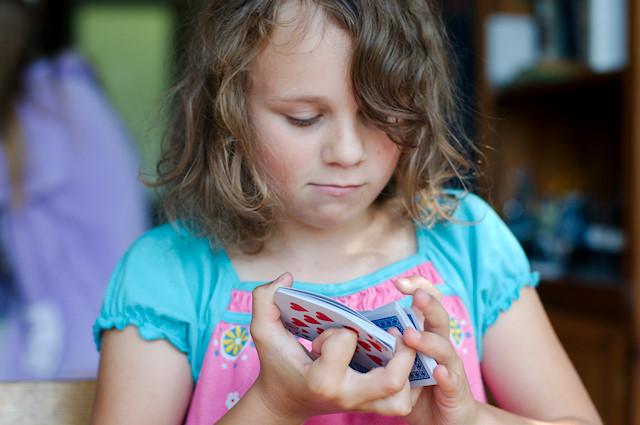
Playing games together was an connecting activity that worked well regardless of who was home or who was at camp or away visiting Nana & Papa.
It was also an activity we shared with family who came to visit. We taught Papa how to play Wizard and played Apples to Apples (Junior Version) with the younger cousins, which was especially hilarious. Man those kids are good.
We learned a few new games, and enjoyed card classics like Hearts and Cribbage. Laurent's absolute favorite game is Chess but that's a two person game and his sisters have grown tired of it and I don't play at all so he will try to wrangle a game or two from any unsuspecting visitor.
Now that all our family members are competent readers we have more games at our disposal. When you play mostly card games that's not so much of an issue, which is one reason we've enjoyed playing them over the years.
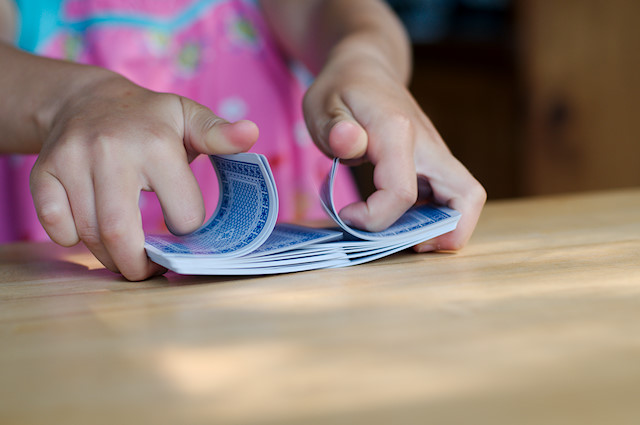
Even so, we haven't let reading or reading difficulties get in the way of playing games. Through the years of non-reading children (at ages most children would "normally" be reading) we chose games with less reading, or we partnered readers with non-readers, and we also played video games with more audio visual components.
In short, we helped each other and we used resources that worked for us.
People have a tendency to get anxious when a child lags behind in "normal" development. There are valid reasons for this, no one wants their child left behind. We want to see our children succeed (ps. that's a link to a book you'll want to check out).
That natural anxiety response to learning delays, etc. will cause you seek out solutions and help for your child. This is good. But living in a state of anxiety about "delayed" development is not good.
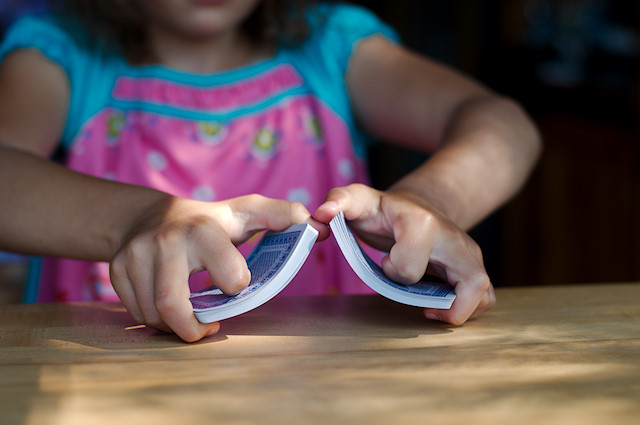
Anxiety, that is rooted in fear, causes us to react in stress rather than supportive solutions.
We lose our creative thinking responses when we operate from fear.
One of the parental anxiety responses to any kind of perceived or real delay in a child's learning is to push a child "for their own sake". If we don't push them how will they eventually succeed on their own in the big bad world? Never mind the kid is seven and has a good 10 years or more before they have to prove themselves to the world-at-large.
What if, instead of pushing our children, we partnered with them?
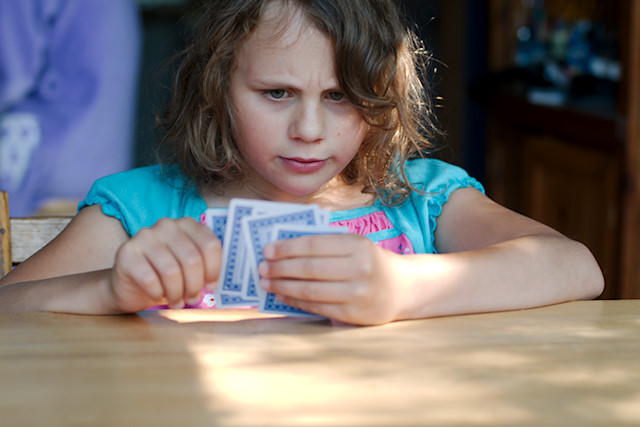
At 12 1/2 Laurent has arrived at competent reader status. We've got a ways to go to strong reader status but we're making excellent progress. You can read more about Laurent's dyslexia here.
In the last couple years we have focused on teaching Laurent specific strategies for decoding language while continuing to help him read, the way we have since he was little.
We've helped him by reading things for him, accessing information and stories in a format that works for him, and encouraging him to read whatever he enjoys most - comics and graphic novels especially.
We collaborate with Laurent in his learning.
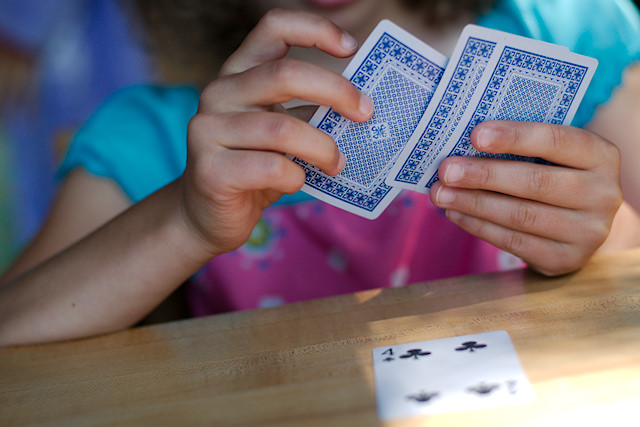
Education does not need to be competitive, it can be collaborative.
This fundamental belief and value is one of the many reasons we homeschool.
Once a child has a firm grounding in a collaborative and supportive learning environment, and feels firmly rooted in relationships of love and trust, I believe they are better equipped to deal with eventual non-collaborative learning environments (you know "the real world").
Helping non-readers, instead of pushing them, is just one example of collaborative learning. Here's more:
Pairing up for math practice.
Regular math practice is part of our elementary and middle years homeschool routine. Our youngest two have done their math together now for a couple years, literally together.
They shared the same computer-program workbook and progressed through the lessons together. I.e.: one login, one account, one progress report, etc for two students.
This was a win-win-win. It helped our non-reader with the reading aspects and helped our youngest since her older brother could explain things she couldn't understand. And it helped me since they were more motivated to do math together than on their own.
For the record, after a couple years of collaborating, our kids are now all on their own math tracks.
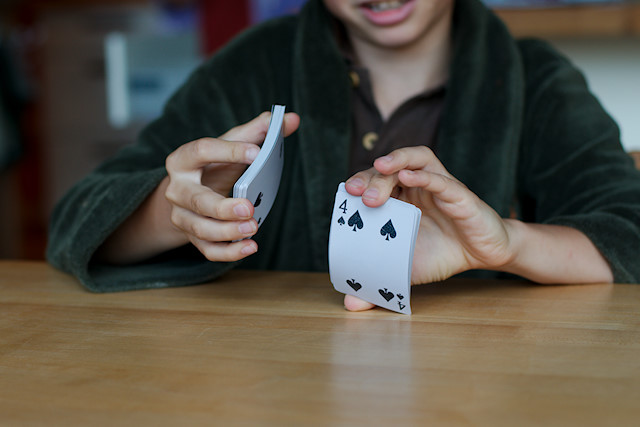
Could they have stood alone if removed from the home and placed in a classroom environment. Maybe? Probably? I don't really care.
They are children and I don't think they need to stand alone in their learning. That comes with time and when they get to a certain age they want to stand alone.
They want to prove themselves to the world, to prove they can do the work. This happens naturally if you just let it and if your children feel ownership over their learning.
Helping your kids spell.
I have a post in the works about spelling. I thought I might publish it before this one and could then link back to it. Nope. So here it is: If your children ask how to spell "....", just spell the words they can't.
Unless they don't care about actual spelling and prefer phonetic spelling. In which case, make sure to translate their work regularly so when they are more competent spellers (yes, it happens) and they look back on their early work, they'll actually be able to understand it.
They will enjoy reading their old writing but unless someone translates it you may not be able to decode it in the future. And obviously, make sure to translate the letters to grandma so she doesn't panic over the kid's "horrific homeschool spelling".
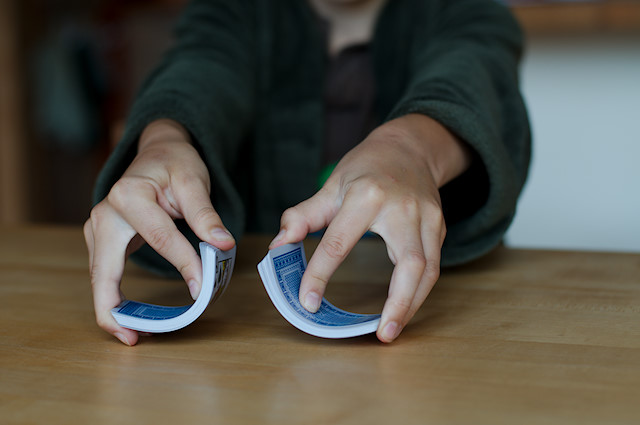
In a home rich with words, reading, and tools (like online dictionaries and spellcheck), eventually they'll learn to spell on their own and they won't want your help anymore.
In the case of children with reading and writing difficulties, such as dyslexia, I would recommend either learning spelling and language rules yourself and then teaching that in a way that works for your child or using a program together, studying spelling in a collaborative, non-stress environment.
Providing math cheat sheets.
At one time I thought I would teach the kids to memorize their multiplication tables by listening to a multiplication songs CD. This was when they were much younger and we actually still listened to CD's vs. downloads.
Problem was, I didn't feel like singing about math and I didn't want to fill up the car rides with "kids music", we prefer good audio books.

Instead I provided each child a 12x12 multiplication table which they've used for all their math multiplication problems, until they didn't need it anymore because... surprise, surprise they actually memorized it.
(And my son may never memorize it, but guess what? In the adult world we use calculators. He'd rather memorize his Taekwondo Poomsae.)
The real math learning we're trying to teach our children is not memorizing the multiplication table. The learning is in the particular concept being taught. Multiplication is just faster addition. It's a way to add up numbers quickly. So is using a calculator. Which is my preferred method of doing math and is a tool I use all the time. Why not give our kids tools too?
The irony of this is that just this week my youngest daughter, now 10, has decided to memorize her multiplication tables. Completely on her own initiative. "Quiz me mom." And instead of her usual story telling mumblings under her breath I hear the murmur of "4x4 is 16, 4x5 is 20..."
I told them they don't have to memorize it! How dare they go ahead and do it anyway!?

So many of us carry over conveyer belt hang-ups about learning - that it must be individual and measurable against peers "to count". That you must stand alone on your own merit to make it in this world. At a certain developmental stage, yes I agree. It's called adulthood.
Even then, we never stand alone but on the shoulders of our teachers and mentors. And in the very best situations, we partner in marriage, communities, and businesses because we realize working together is so much more effective and enjoyable than trying to do it all ourselves.
When learning is collaborative it's also confidence building. Because you feel support beneath you. It's safe. And when you feel safety you can go deep with ideas and interests and are mentally free for creative and intellectual exploration.
This is true for business, marriage, and education. This is true for life.
Why do we feel we must pull the safety net out from our children before they are ready?
Why do we push our learners instead of partnering with them?
Because we don't trust the process of self-directed learning. We don't trust that our children are wired to learn.
Partnering with our children does not mean doing the work of learning for them. That's their job, it's what they want to do, when they're in charge of it.
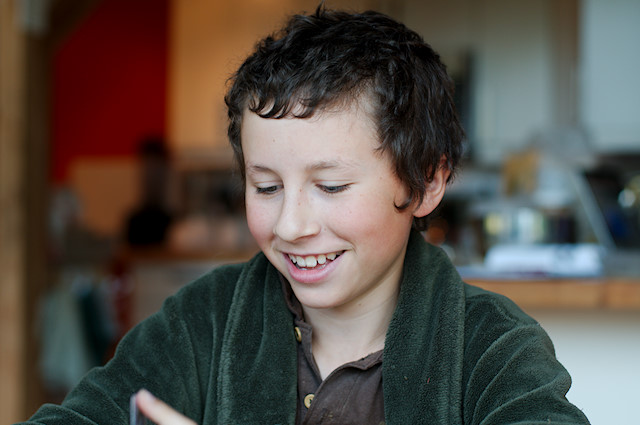
Partnering means removing the obstacles and barriers that are beyond our children's ability to scale themselves. Providing resources and tools. Teaching and inspiring. Exposing them to ideas and options they hadn't considered.
Partnering and collaborating with our children means just this: doing the work together until they are ready to do the work alone.
Filed Under
Resource Library
-

Tonya on Sept. 20, 2013, 11:48 a.m.
Love this Renee! So true... I have stopped fighting with the children too - we have a rainbow multiplication chart that hangs near the dining room table and I am fine with our 13 year old using it.
Love and connection work so much better, don't they?
-

Kika on Sept. 20, 2013, 1:44 p.m.
Great post.
Oh, how I remember the shame (and fear of my secret being discovered) when, in grade six, I still didn't have my times tables memorized! Eventually it clicked and they stuck in my memory later that year but why should any person feel such shame?! We should invite our kids (and ourselves) to ask questions without embarassment, to admit when they/we do not know the answer, etc. We all have different strengths/weaknesses and, frankly, interests. There are simply some subjects that I find too boring for words and about which I would never care to memorize facts. One can always search out info as needed.
-

Alexis on Sept. 20, 2013, 3:27 p.m.
I LOVED this post (as I often do of so many of your posts)! You constantly encourage me in my homeschooling endeavours. I know my children have greatly benefitted from all the wealth of information I have received through you. I sure it wouldn't be your cup of tea but you would make an incredible speaker at homeschool conventions ;)
-

renee on Sept. 20, 2013, 3:38 p.m.
Alexis,
Actually, I would love to speak at homeschool conventions. I'm curious that you think it wouldn't be my cup of tea, I'm wondering how I've presented myself in a way that is contrary to that. I'm extroverted, I love connecting with people, I LOVE encouraging homeschool parents and creating and nurturing relationships of freedom and trust and I also enjoy presenting to groups. My bucket list includes being a homeschool convention speaker. Do you happen to be on a selection committee? (smile).
-

Alexis on Sept. 21, 2013, 4:28 a.m.
I was actually just thinking in terms of a career, the constant travelling etc. It seems the speakers at our comvntion are constantly traveling from one place to another for speaking engagements and I would imagine that would be difficult to do with youg(ish) kids.
I, unfortunately, am not on a committee but I will happily send a recommendation to our convention committee. ;) I'm in BC, Canada and I think that many people in this area mesh well with your style of learning.
-

renee on Sept. 21, 2013, 12:14 p.m.
I see... Damien and I plan to travel and adventure in this stage of our lives - the 2nd half of parenting and once our kids are grown. We like going places. So it might be a good fit, as long as there were plenty of hiking and outdoor opportunities along with speaking engagements. However, being speaker on a circuit is something I can't even imagine right now. Doing a couple homeschool speaking engagements to see what they were like was more along the lines of what I was thinking. Interestingly, Damien and I would love to live in BC someday. And thanks for your encouragement.
-
-
-
-

Alison on Sept. 20, 2013, 7:59 p.m.
I realised that collaboration is part of how we support Junior Reader. Reading is coming along, but doing lots of reading on your own gets tiring.
So we do a mix of things: us reading aloud, Junior reading aloud, and also co-reading: where one parent reads some of the book and Junior Reader does the rest. This means more gets read, and interest level stays high for longer.
Dan has really made this work well on things like Asterix, Tintin etc - Junior Reader tends to get to read hero-type roles, Dan does the rest. And we enjoy the reading experience together.
Thanks for the encouragement that working together is FINE!
-

Mama on Sept. 21, 2013, 12:23 a.m.
I really enjoyed this post Renee. Buddy and I are learning chess together, and he is really enjoying it. Perhaps someday Buddy could play with Laurent. Out of curiosity, what types of graphic novels does he enjoy? We are experimenting with different types of reading with Buddy, and though he has enjoyed Tintin for its story, the words are very small, making it quite difficult to read and enjoy at the same time. Is there a good source for graphic novels appropriate for young boys that also has big type? If you could point me in the right direction I would be grateful!
-

Mama on Sept. 21, 2013, 12:25 a.m.
have big type, lol.
-
-

Brittany on Sept. 21, 2013, 3:46 a.m.
I adore what you do with words. Thank you for sharing with the world.
-

Ellen on Sept. 21, 2013, 4 p.m.
I've discovered that my middle son will read "hard" books on the kindle in a large font!!! It changed everything for him!
Love your kindness and dedication to your kiddos!!
-

renee on Sept. 21, 2013, 4:10 p.m.
Isn't it wonderful when we find the right tools that work for our kids?
-
-

andrea on Sept. 21, 2013, 4:40 p.m.
Wow. This one is an eye-opener. It's our first year of homeschooling and I'm starting to get a little worried that maybe we are not making as much progress as we should. At the back of my mind, there are voices that tell me "he should have been able to answer this one on his own by now." Collaborative is one big word. And today is the first time that I understood how it could apply to OUR learning. Thank you so much!
-

Lori on Sept. 21, 2013, 7:47 p.m.
“Why do we push our learners instead of partnering with them?”
Fear, I think. As you say, they don’t trust the process — even though if they pay attention, they should see that their children have been striving to learn and do from their first day on earth.
And people have weird ideas, too, about independence. They think pushing kids to do things on their own will make them more independent, when actually, much like toddlers at the playground, it’s when they feel totally secure that they feel safest to venture out. Pushing can make a lot of kids extra-clingy.
Great post, Renee!
-

renee on Sept. 22, 2013, 1:25 a.m.
agreed. I had originally included more in this post about learning from birth and how we seem to trust that process when our children are infants, toddlers and pre-schoolers, but lose faith during the school years. Even though our children's drives have not fundamentally changed.
-
-

Jeanine on Sept. 21, 2013, 8:27 p.m.
I really appreciate this post. This is exactly what I'm doing with my 13 year old daughter this year, and the lack of stress from outside expectations has been so wonderful. She has relaxed in a good way, meaning that she is obviously enjoying learning so much more at her own pace. We opted not to take any outside classes right now, though I won't rule them out in the future. For now though, we're catching up on all the read aloud books I have as well as curriculum that I already had from homeschooling my older children. It feels like we're being a good steward of our resources as well. I really love the idea of just giving her a multiplication chart to use as needed, since we have really struggled with memorizing multiplication tables. Thanks so much for the wonderful, liberating thoughts!
-

Catherine Forest on Sept. 23, 2013, 2:20 a.m.
What an important message, Renee!
We have two favorite games that we play almost every night (and have been for over a year), it's Carcassonne and Five Crowns. I highly recommend them!!
-

Shelly on Dec. 9, 2013, 8:33 p.m.
Thank you so much. This is officially my new favorite blog. Your suggestion about giving each child a multiplication chart took so much weight off my shoulders. My 9 year old has been having difficulty memorizing her times tables, and I've been stressing about it. This makes so much sense! Similarly, I'm going to give my seven year old an addition table. I know it's more crucial to know addition, so hopefully this will help with her memorization. I'm currently homeschooling seven of my kids and have three more to homeschool in the future. I'm going to read every one of your posts because I'm finally learning to separate our learning from what society expects.
You can subscribe to comments on this article using this form.
If you have already commented on this article, you do not need to do this, as you were automatically subscribed.


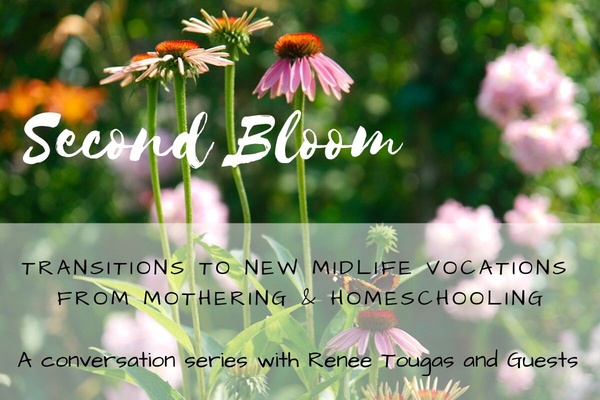




Sarah on Sept. 20, 2013, 5:28 a.m.
LOVE LOVE LOVE this. I have always enjoyed and wanted to learn independently ("Did I ask you to tell me how to do that?!") but am so greatful for all the moments when parents and teachers did collaborate with me. I love your message about competition. I truly believe that a collaborative society (rather than one focused on who-is-better) is what we should strive for. As I am now in this pressure cooker called "senior year of high-school surrounded by amazing, intellectual, interesting peers who are AWESOME to collaborate with and are not so fun to compete with" those words really resonated with me. I am trying to learn from those around be and remember that others' success is actually GOOD for me and good for the world, never bad for me.
I was wondering if you read the NYTimes article on tablets in schools... I have a bit of a Montessori bent but thought the commentary about how they enable teachers to be more individualized and to let children work at their own pace was really worth thinking about (although of course that's nothing new to you).
Also, thank you for your note at camp. It was lovely to receive. Hopefully someday I will send you all real letter but until then I wanted to say "hi" and thank you for these musings.
renee on Sept. 20, 2013, 12:26 p.m.
Welcome back to civilization Sarah and so nice to hear your lovely voice again. Thank you for taking time to add your thoughts to this post, busy as you are with your senior year!
I haven't read that article. I don't read many NYTimes articles unless Damien sends them my way. Learners working at their own pace is just a way of life for us (smile).
No need to write back. I just wanted to send a little note to you at camp.